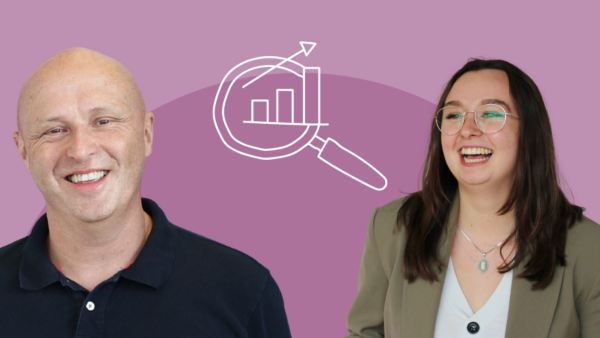Why bother with a development plan and why now?
During times of uncertainty AND at the start of each year, people often focus in a little more on their personal and professional development. This makes sense, because when you’re less sure what the world is likely to throw at you, at least you can create a greater sense of control by working on yourself – making yourself more employable, ensuring your skills are transferable – as well as giving yourself a boost of self-esteem by in some way becoming a better you.
In these times, there’s also another factor at play: people taking back more control of their lives by focusing in on what they love.
What better areas to develop than those that give you the greatest feelgood, or that you’ve always wanted to stretch a little bit and do more with. Combine all this with us moving further into the New Year, when we’ve all had a little time to reflect on the important things in our lives and we’ve maybe even made a commitment to ourselves to get out there (or stay in there) and do that thing we’ve been promising ourselves we’ll do for years but have never quite been able to get round to it.
5 ways to make your personal development plan work for you
Today, I’d like to offer up my tips for how to own your development for the year ahead. I’ll be taking you through how to:
- Check in with your purpose – your personal purpose and your work objectives – to find focus for your development
- Be realistic – can you keep it going, is it possible, how can you make sure that you stick at it?
- Use your strengths to do it your way – whatever your development goals, how can you energise your development plan so that you can make it strengths-based and you-shaped?
- Supercharge a strength – push your comfort zone into stretch in an area that up to now you may have taken for granted because there’s nothing wrong with it, so need to stretch it, right.
- Bring a friend – development becomes so much more real and achievable when you have a critical and supportive friend or friends who are there for your journey.
Tip 1. Find your purpose and link your development goals to it
My first tip is checking in with your purpose when considering your development options. When I say purpose, I’m talking Ikigai-level purpose (in other words, your life purpose, what you’re striving to achieve on Earth) – check out my podcast and blog on Ikigai for more on that which is at Season 6, episode 6. It’s called ‘Want to live longer? You need Ikigai’.
Separately, I’m also talking about your work objectives. If you can aim your development goals for 2021 towards one area and meet both of those purpose criteria (life purpose and work purpose), then great. If you need to treat them separately, that’s also fine (and is probably more likely).
First your life purpose
To the big one first, your raison d’etre, your reason for being, the legacy you want to leave the world. If you have a handle on your personal purpose and you’ve done some work on it already, great – then how might you align your development with that purpose in some way?
For example, if you want to help as many people in the world, or in your local community as possible to live more fulfilling, happier lives, you could ask yourself are there skills you could learn or knowledge you could acquire that would help you to get there quicker or with more enjoyment perhaps? So whichever way you’ve chosen to make your purpose happen, could you perhaps:
(idea 1) Learn different communication skills to get your message out more widely?
(idea 2) Could you collaborate with other people or organisations to get them on board and do you need to upskill to do that?
(idea 3) Do you need more skills or knowledge or experience to better help the people you want to help? Whatever you do development-wise, if you have purpose behind that development goal, you will stick at it longer because you will be fuelled by something bigger than you.
Next your work purpose, or work objectives
When it comes to work purpose, you can ask yourself the question again – what are the main things you are trying to achieve but this time in your role at work and how can you develop more skills or gain more knowledge or experience to better get those things delivered?
If there’s a lot of things that your work role requires of you, in order to focus your development, maybe find the most important element and find the area to develop that will give you the greatest payback, rather than spreading your development too widely and not getting the return you’re looking for in any area.
Or find the one thing to develop that will positively affect as many of your work objectives as possible. That could be an area where you feel your knowledge or experience is lacking a little or it could be an area where you are already strong but where you could get even better with some more development.

Tip 2: Be realistic about what you can do development-wise
Be realistic about what you can do, in addition to your day job and to your life outside of work. Even if your development plan has extra oomph because you’ve linked it to your purpose, if you’ve been over-optimistic with what you’re expecting from yourself, all too quickly, you’ll end up feeling like you’ve failed because you haven’t been able to achieve what you wanted in the time you’ve set yourself.
So show yourself some kindness and set yourself up for success by being realistic with the time and energy you can devote to your development rather than setting yourself up for a fall by taking on too much and then giving up once you miss a milestone or a target.
Celebrate your successes along the way too – every step forward is progress and that’s worth remembering.
Don’t fall foul of New Year’s resolutions
At the start of each year, many people inadvertently set out with great intentions for their year ahead after having made New Year’s resolutions. But to make these stick, they need to be realistic. When we have a holiday or time to relax (for many people, that can be around the time of the Christmas break, or summer holidays, or whatever it may be in your world), we start to believe that with only some minor reorganising of our diaries, we will be able to accomplish incredible things in a way that is so different from the last time we tried it.
However, realism and past learnings can be great allies here – aim for progress not perfection and you will arrive at a development plan which you’re much more likely to stick with for longer. Imagine setting yourself some goals for the year ahead which you ACTUALLY ACHIEVE! So far then, we have the link to purpose and to make your plan realistic.
Tip 3: Supercharge your development plan with strengths
Whatever you have created by way of development goals, there is always, literally always, a way that you can add even more zing and punch to the achieving of those goals by personally selecting the strengths you will call into action to help you. So pick from your top strengths – and if you don’t know what these are, you need Strengthscope.
I’m talking about those strengths which are going to help you the most to get your development goals met. It could be Resilience to get you charged up by a tough challenge, it could be Self-improvement to get energy from the learning and development journey, it could be Results focus to get a buzz from chugging through that development plan. Whichever strengths you call up, make sure that you know exactly how you’re going to use them from a practical POV, so that you notice when you need them and when they’re in use and how that feels different to you (if the approach is working, you should feel more energy for your development longer).
Tip 4: Stretch a strength to supercharge yourself
Speaking of strengths, an opportunity for development that is much undervalued is planning to stretch the strengths which you’re already most comfortable using day to day – those qualities that energise you and that you’re already great at, or have the potential to become even greater at.
My tip here is to sift through your top strengths and take an honest view on that. Are there any which when you think about it are pretty much always delivering for you without the need for much effort but which also are slightly in neutral, underused…you’re not pushing them because you don’t need to, or because pushing them might feel a little risky? If the answer’s yes, then an opportunity for your development plan is to take one of your strengths by the hand and ask for more from it…potentially much more, ideally aligning it with your purpose, and your work goals. It might feel a little indulgent at first to consider developing something that is already in good shape, but all the research points towards this being the most efficient and enjoyable way of delivering greater value to the world when you consider your development options. For more on that, check out my podcast and blog on Why you should be directing your learning towards your strengths – which is at season 7, episode 6.

Tip 5: Get a development buddy on board
Last tip: connect up with others to help keep you focused on your goals, to celebrate your successes and highlight to you if you’re going off track. To make this work, you need to find a person or people who will genuinely stick with you and who will be prepared to ask the tough questions of you when you need them to, but of course from a place of support and appreciation.
Summary for owning your development in 2021
OK, that’s it from me for this week – my tips are to own your development for the year ahead by checking in with your purpose, being realistic, bringing your strengths into play, maybe even developing a strength, and getting a learning partner or two on board. I hope you’ve enjoyed this blog.
If you’d like to get more from your every day, please do sign up below to our emails for simple and practical hints and tips on everything strengths and life. Till next time, stay strong!
This podcast is available on all major podcast platforms. Find it on Apple podcasts, Spotify, Google podcasts, Stitcher, ACast and Soundcloud. Check out the back catalogue and subscribe to get them every Monday morning.












